Spain is still a 3rd-World Country, isn't it?
From the end of the Civil War in 1939 through to the demise of Franco's fascist dictatorship, which effectively ended on his death in 1975, Spain was most definitely a 3rd-world country, ie backward.
So says my friend, who is a keen student of all things Spanish.
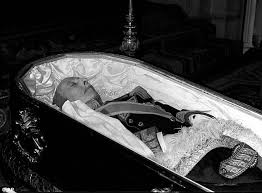
Franco dead (at last!) [Daily Mail]
Cut off from the rest of Europe and stuck behind the natural barrier of the Pyrenees, Spain was out of the mainstream and backward in so many ways.
Her only contact with the 1st-World was with the USA, which exploited Spain for its own purposes, following the Civil War, by having a military presence on the peninsula and a base for its nuclear weapons in Rota (Cadiz).
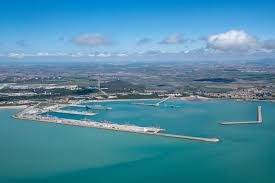
Rota US Naval Base [Wikipedia]
The monarchy and democracy restored after Franco's death.
Following Spain's return to being a a monarchy in 1975 and, from 1977, a constitutional democracy, there was hope that things would improve. The borders opened and from 1986 Spain became a member of the European Economic Community, now the European Union.
Modern Spain
Spain has benefited enormously from its membership of the EU, with massive agricultural subsidies and European Grants via the European Development Fund.
With Objective 1 status the country benefited from massive funding for infrastructure projects.
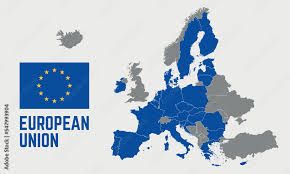
[Map: Adobe Stock]
Nowadays, Spain has one of the best railway networks in Europe, and a system of motorways, which is second-to-none.
It still receives massive grants for new housing.
The Socrates programme for educational development provides funding for educators and pupils to focus on specific aspects of education.
***
For reasons which should be obvious, my friend, mentioned above, wishes to remain anonymous. Here are his thoughts.
Spain remains a 3rd-world country
A personal story
By Anonymous
When I was still working, I benefited greatly when the UK was still a member of the EU, taking part in study visits to France; the Netherlands; and Spain.
As the Modern Languages Adviser for two Merseyside LEAs, first St Helens and then Sefton, I also acquired funding to finance the setting up of work experience projects with Stuttgart, Germany; Chalon-sur-Saone, France; and El Prat de Llobregat, near Barcelona, Spain.

[Image: European Commission]
I led groups of teachers on study visits to Adelaide, Australia; and Brussels, Belgium.
For my own personal benefit and professional development, I managed to acquire funds for work experience in both Chalon (q.v.); El Prat (q.v.) and Stuttgart (q.v.), combined with a supervisory and public relations role vis-a-vis the work experience students.
In 2001, Liverpool was chosen as the European City of Culture. Sefton is next-door. I applied for and won funding to pay for various events to promote Europe in schools and with teachers, which took place throughout that year.
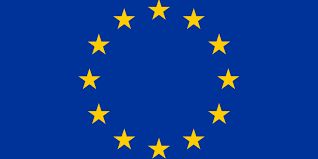
[Photo: Getty Images]
By 2005 I and several colleagues had been made redundant and took early retirement with generous terms: a tax-free redundancy payment and a final salary pension (sadly a thing-of-the-past now). I had enough to live on and emigrated to live in Spain in 2008.
By 2010 I was re-married and enjoying my new life in "3rd-World Spain".
***
Then in 2016 the British electorate voted to leave the EU in a referendum after being consistently lied to by the likes of Boris Johnson and Nigel Farage, but also by John Redwood, Jacob Rees-Mogg and others.

Bojo the Clown [Facebook]

Farage [Daily Express]
My experience of Spain
I first came to Spain, to San Sebastian, in 1970, aged 20. Franco was still alive and in power.
I became a regular visitor to Spain both before and after the dictator died in 1975. I travelled all over.
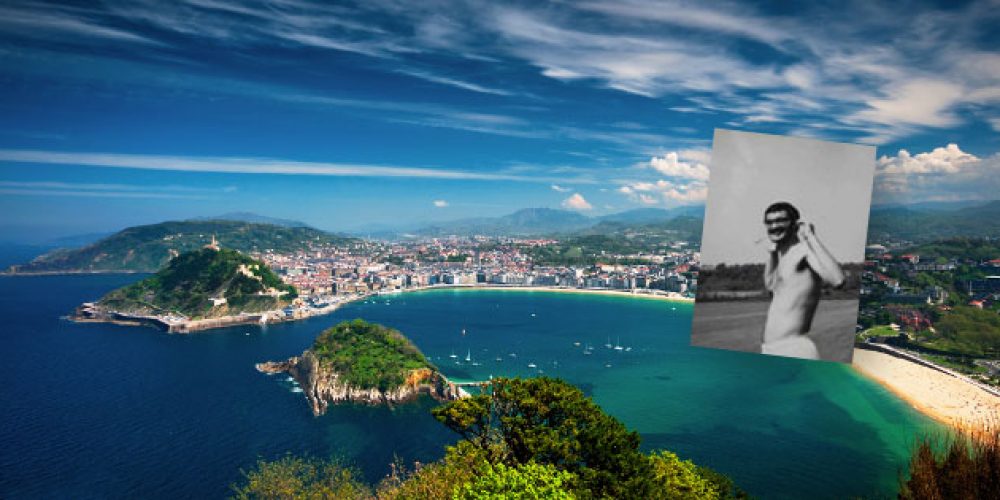
[Photo composition courtesy of Karl Smallman]
I finally emigrated to live here permanently in 2008. I do not regret the last 17 years one bit, but, I'm sorry, SPAIN IS STILL A 3RD-WORLD COUNTRY!
Why?
The reasons for my opinion are mainly connected to the weather. Why can't a modern, successful country like Spain have a decent infrastructure to deal with a storm or a hurricane?
Here in Ronda, where we live, our neighbourhood was flooded out in 2011, 2018 (twice) and again in 2024.
Earlier this year 231 people lost their lives in the massive flood in Valencia and 500,000 cars were written off. There have also been massive floods in other parts of the Mediterranean coast and in the two island groups, the Balearic Islands and the Canaries.
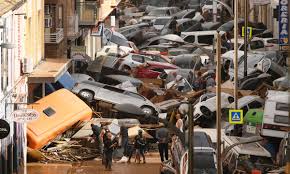
The aftermath in Valencia 2024 [The Guardian]
All because the drains and sewers couldn't cope with the volume of water running off the fields, hills and mountains.
El apagon of 2025.
This was a joke, surely. At the time I thought it was funny, but it wasn't really! This is what I wrote at the time:
The Big Shutdown
Around mid-day last Monday most of Spain, Portugal and parts of France suffered a major power-cut, named by the Spanish Press as El gran apagon.
It took some eight hours for power to be restored to some areas; other areas had to wait until Tuesday for the power to come back on.
It was a strange, yet amusing situation, albeit critical too.
From a personal perspective
I was in a small village in the Serrania de Ronda at the time. In Montejaque (Malaga) (pop: 960). I'd just gone to the square after a hard day working on my house in the village.The Plaza de la Constitucion is home to three bars. They were all open. Two promptly closed because without electricity they couldn't prepare hot food nor keep drinks cold.
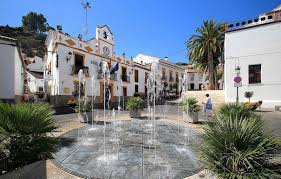
Montejaque [Photo: Karl Smallman]
So, with little money to be made, they called it a day. What happened to the concept of "service"?
The one remaining bar, La Melli, stayed open. They had no food, but they did have loads of ice cubes.
I was sitting with a group of other guiris: Anya, a Dutch resident; two Dutch tourists, three French women who had just arrived; and another Briton, Barry, who owns a house in Montejaque, but lives in Japan with his Japanese wife, Mika.
There were just two Spaniards.
What had happened?
We didn't know, to begin with, as it was difficult to access news. No TV; no radio; no WiFi; mobile phone systems down.
Added to that, with no electricity we couldn't pay by credit card; nor could we draw cash from the "cajero automatico" at the bank.
There were no lights in the shops, so you couldn't see what you were buying; the fridges and freezers stopped working, and so did the tills.
At the checkout everything had to be written down and added up with pen and paper and a calculator or in the head. And you needed the right money in cash.
Back to our mobile phones, if you had "roaming" you could access some information.
Somebody got onto a reputable Press website which told us that France, Germany, Morocco, Portugal and Spain were affected.
People began to joke that it was probably a cyber attack by Vladimir Putin in Russia. But, maybe it really was!?
By Tuesday we knew that the countries affected were Spain, Portugal and parts of France. Apparently, their national grids are linked in some way.
One Week Later
A week further on and nobody seems to be any the wiser. Investigations are still ongoing. Typically this has caused a political row in Spain with Alberto Nuñez Feijoo (PP), the leader of the opposition, taking advantage to blame the government, led by prime minister Pedro Sanchez (PSOE).
It is quite clear that the government is NOT to blame. As in many countries, electricity was privatised some years ago. These private companies, eg Endesa, Iberdrola et al are more interested in paying their shareholders a dividend than investing in improvements to the electricity infrastructure.
It has become clear that the Spanish system is not fit for purpose. The sooner the government takes essential services like electricity, gas and water back under its control, the better, in my opinion.
How did the apagon affect us?
We had no light, no heating and no water - we have a pozo (well), so our underground spring needs electricity to pump it into our deposito.
We had no telly, no radio and no internet. "We need to buy a generator!" says the missus. "In case it happens again!"

[Generators Direct]
Power cuts
Since I've lived in Spain, some 17 years, power cuts are the norm, especially if the weather is bad. One year on Christmas Day we had 25 power cuts. How were we supposed to cook our Christmas Roast?
Fortunately we had booked a restaurant meal and they cooked on gas and also had a diesel generator, which kept the fridges and freezers working.
August - Spain is shut!
Spain shuts down in August. This is when everybody goes on holiday, especially funcionarios, council staff and lots of shops. Try getting a plumber, electrician, joiner, or bricklayer in August. No chance. So, August is a month of total inefficiency.
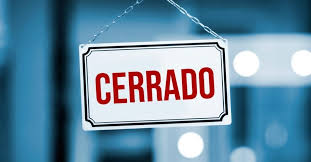
[YouTube]
Bureaucracy
Don't even get me started! This issue is my major bugbear with Spain. I am so frustrated at the incompetence and lack of simpatia of the officials involved. However, I've learned over the years how to deal with this?
For tax issues I go to a gestor who does it for me for a nominal fee.
For other things, I go to the appropriate office early, before the Spanish get up. They are notoriously late starters. Speaking Spanish fluently helps, of course, and in the end I get most things done.
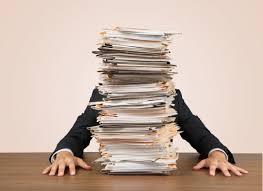
[Image courtesy of Naturaleza Cantabrica]
Why are you complaining today?
How long have you got?
After a severe storm last night (Storm Claudia) we were left with no heating. I was unable to contact the repair company for hours, because their phones were down.
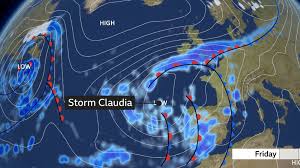
[BBC]
My pharmacy had no internet so when I went to collect a particular medication I needed, the pharmacist could not electronically read my tarjeta sanitaria which contains details of my prescribed medicines. I still got what I wanted, but had to pay the full retail price.
When I went to check on my rental house in a nearby pueblo blanco, there was more water inside the house than out! OK, I'm exaggerating, but it highlights again the poor standard of many building workers.
The two I had chosen, excellent in lots of ways, were clearly not competent to make an old house watertight.
I bought up the three remaining buckets at the local shop - there'd been a run on buckets, so presumably other houses had similar leakage problems - and placed them and large containers I already had strategically around the house to catch the water.

[Stockcake]
I removed pictures and bedside rugs which were "in the line of fire" and set them out to dry. I think some pictures will be heading for the tip. The water had knocked out one of the ring mains so no electricity downstairs.
By this time I'd had enough and went home. That was Thursday.
Storm Claudia has been dropping non-stop heavy rain on us ever since, so yesterday, Sunday, I went off to my other house early to empty the buckets and check for any further damage. No more rentals this year, that's for sure.
I eventually got hold of my boilerman - he's so busy he can't come until next Friday.
Perhaps if he didn't take the whole weekend off and offered an emergency 24-hour service, at least at times like this, he would be better thought of.
3rd-World? Definitely.
TV reception
TV reception is non-existent or poor today, Sunday.
Atmospheric conditions affecting satellite reception probably.
Surely it's not beyond the wit of man to have developed ways of overcoming this. I'm not aware of the UK or Germany losing their TV reception during bad weather.

[Aerial World]
Last word
OK, I've had a good moan, and got all my gripes off my chest. Yes, Spain is still a 3rd-World Country, but, you know?
..... I wouldn't live anywhere else.
Spain is (almost) the perfect place for me: it offers a great lifestyle; I love the Spanish (mostly); it's cheaper than any other country I know (I own two houses here and my domicilio is much better than anything I could have afforded back home; the climate suits me; and I speak the language like a native.
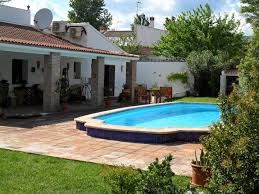
View of Villa Indiana [Paul Whitelock]
In the UK, I lived in Devon; Salford; Sheffield; Worsley; Warrington (Cheshire); and North Wales. I've spent significant periods in Scotland (Isle of Arran, where we had a timeshare); Cornwall; the East End of London; and Hastings.
I enjoyed all these places in different ways, but would I want to live in any of them now?
NO, NO, NO!
In Europe and the rest of the world I've lived in San Sebastian (Spain); Stuttgart Germany); and Chalon-sur-Saone (France).
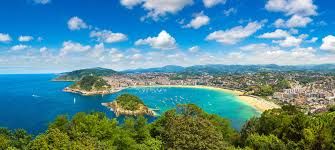
San Sebastian [Spain.info]
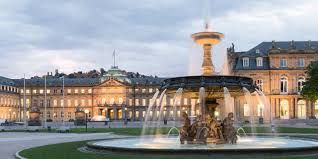
Stuttgart [YouTube]
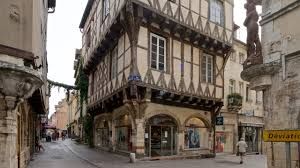
Chalon-sur-Saone [Wikipedia]
I've spent time in Australia (Adelaide); Belgium; Greece; the Netherlands; the Soviet Union; and the USA (New Orleans, Los Angeles, San Francisco, Yreka, Tacoma and Seattle).
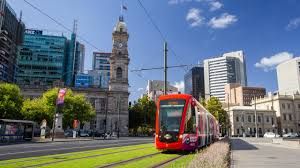
Adelaide [Expedia]
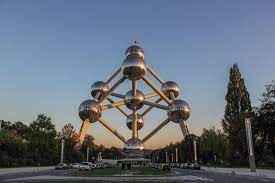
Brussels [unattributed]
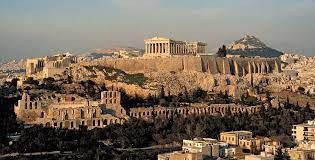
Athens [Britannica]
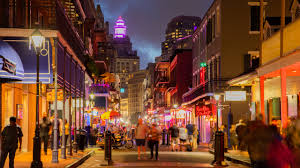
New Orleans by night [Expedia]
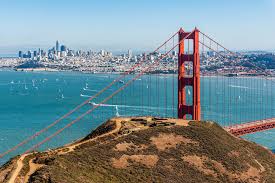
San Francisco [Lufthansa]
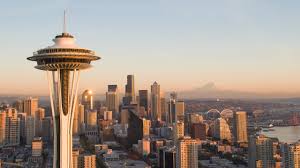
Seattle [Conde Nast Traveler]
I've visited some 35 capital cities in my seven decades of life on this planet and enjoyed some fascinating experiences.
On my "bucket list" are trips to Cuba; Hungary; Morocco; Peru; and Poland.
Yet, I shall not be moving to any of these places. SPAIN IS MY DESTINY!
I shall die here (not too soon, I hope!) and my ashes will be interred in a nicho in a nearby pueblo blanco.
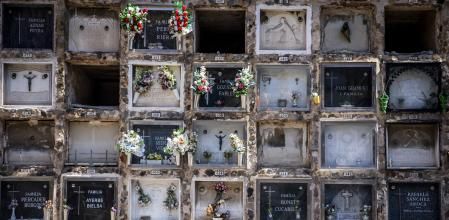
Un nicho tipico [La Vanguardia]
Despite all this positive noise, Spain is still a 3rd-World Country in many respects!
Q.E.D.
© Anonymous
Acknowledgements:
Don Pablo, Eye on Spain, Secret Serrania, The Curmudgeon, Wikipedia
Pictures and images:
Adobe Stock, Aerial World, Britannica, BBC, Conde Nast Traveler, Daily Express, European Commission, Expedia, Facebook, Generators Direct, Getty Images, Karl Smallman, La Vanguardia, Lufthansa, Naturaleza Cantabrica, Paul Whitelock, Spain.info, Stockcake, Wikipedia, Youtube
Tags:


